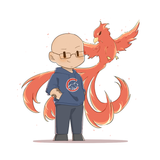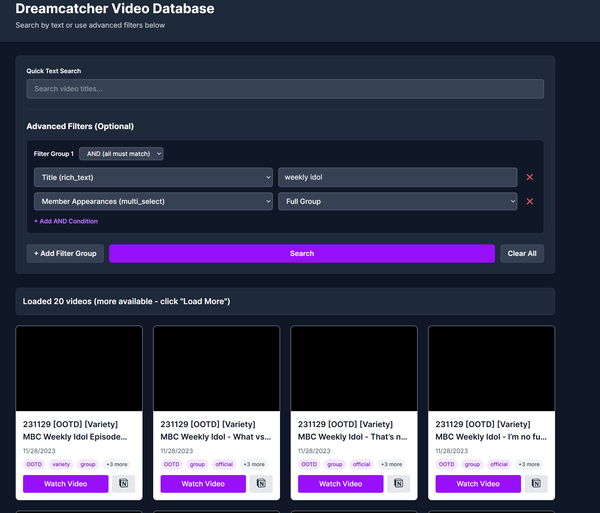The Community Nudge
Subtle prods sometimes have huge payoffs when it comes to online communities.

Part of the reason I got into working with online communities both personally and professionally is the fact that when they are built and managed well, they are organic entities that create their own moments of belonging - that kind of companionship and camaraderie that can only be experienced when you're a part of a group that shares interests and ideas. Aside from the care and feeding you'd usually attribute to any community on the internet, the community keeps on running without your intervention, creating their own memories, moments, and memes.
That said, I always like to give what I call a "community nudge" once in a while. What's that, you say? It's a simple prod that elevates the community a little, stirs up conversation, and increases inclusivity, and it's mostly delivered in subtle ways.
Recently I came off of a four+ year stint moderating the largest Dreamcatcher Discord server on the platform. If you've been following my writing, you probably know who Dreamcatcher is by now, but for those who do not, they're a decently successful mid-to-upper tier K-Pop group. The community grew from around 8,000 to around 19,000 during my time there, and while I think this would have happened regardless of what I or the other moderators did, I think little nudges we did helped keep people around.

"Hello" is probably one of the toughest things to say in an established online community sometimes. It seems silly to think that, right? You're just saying hi and virtually waving is all. Yet the old tendencies of people who mostly lurk in Discord are hard habits to break, and even today, the active chat in communities online are made up of a fraction of whoever is sitting in the server.
But if you can nudge someone who's just saying "hi", braving the wilds of people already-familiar with one another to participate, that means something to them. I tended to respond to those who said hi more often than not, and when they would offer details or ask questions, recognize that by replying. Discord by default notifies people when they're replied to or pinged, and that small sense of validation and belonging can go a long way. This is especially true in K-Pop communities, where tribalism (for good or for ill) is more important when fandoms bond together collectively. Recognizing when a new person who got into the server, reassuring them that their questions aren't foolish or silly ones, embracing the fact that they're choosing to even type in the main chat with a gif or an emote or a kind reply - those things are the things that can keep someone around instead of having them be a Discord tourist, so to speak.

Discord communities are funny in that the real-time chat nature of things mean memes and trends get born (and sometimes stick around). When a new person attempts to engage with that, they're taking a chance, even if they are asking about or are unfamiliar with the inside joke the community is sharing with one another.. One that I think somewhat accidentally became a thing in the Dreamcatcher Discord was the .wddth (shorthand for "We Don't Do That Here") command, which triggered a funny GIF from the Black Panther movie about what was and was not Wakandan custom.
It started out as a subtle way for moderators to remind server members what was objectionable behavior, and frankly, it still is. Yet to my delight, the little funny nudges that were also reminders that this command achieved were picked up by the community to do the same (though many times it was done tongue-in-cheek, or in response to people who were just purposefully meme'ing to get the command done to them). It became a way for the community to self-police when serious, to meme and have fun when they were not, and generally took on a life of its own.
I can't say we envisioned .wddth to be this way when we implemented it (honestly I'm glad I didn't go with my original thought of making it .wedontdothathere for fear of being too long), but that doesn't matter. It was a little nudge that built community and gave people an inside thing - many of which are critical to keeping communities growing.

I think if you're in charge of a community, whether you're in Discord, or Reddit, or any other place where there's moderation or oversight, you should consider community nudges when you can. If they're contrived and obvious, a community's bullshit radar will go off and they'll think you're just pandering, but if they're subtle and are natural in the moment, like participating in a meme-off or amplifying something that gets productive or frequent talk going, they have long-term benefit - and who knows, you might be inadvertently creating something that will last long after you might inevitably move on.




